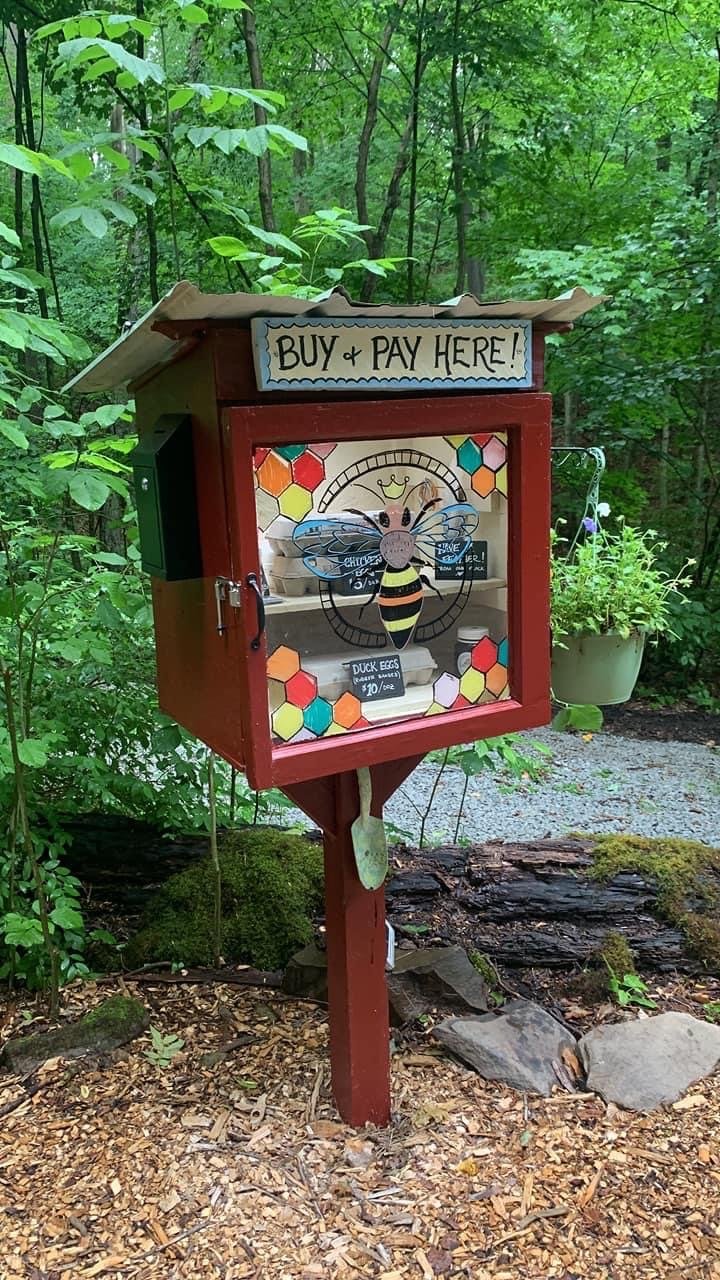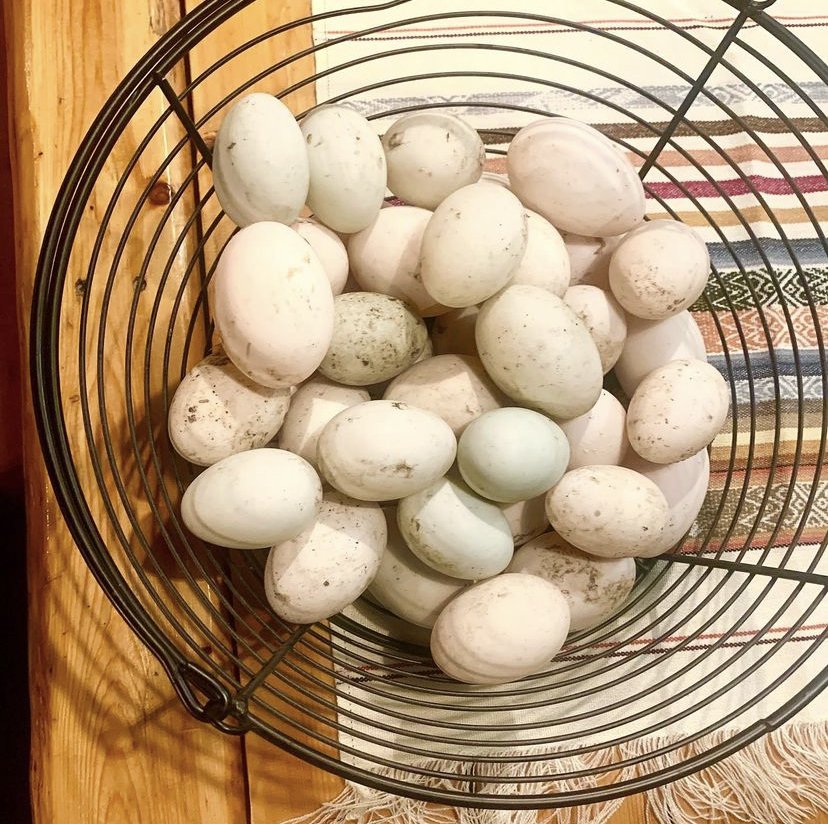We proudly offer 100% organic, non-GMO and pasture-raised chicken and duck eggs.
Or simply put: the way that God intended! Available by the dozen via cash or Venmo from our farm stand.
* All eggs are first-come, first-serve
Chicken Eggs:
$6/dozen
Duck Eggs:
$11/dozen
Our high-quality organic feed is now proudly sourced from a local feed mill. Feed Ingredients:
Organic Corn, Organic Roasted Soybeans, Organic Oats, Organic Alfalfa Meal, Fish Meal, Aragonite, Monocalcium Phosphate, Organic Dehydrated Kelp Meal, Salt, DL Methionine, Calcium Carbonate, Vitamin A Supplement, Vitamin D3 Supplement, Vitamin E Supplement, Menadione Dimethylpyrimidinol Bisulfite, Riboflavin Supplement, D-Calcium Pantothenic Acid, Niacin Supplement, Choline Chloride, Vitamin B12 Supplement, Folic Acid, Thiamine Mononitrate, Pyridoxine Hydrochloride, Biotin, Manganese Sulfate, Ferrous Sulfate, Zinc Sulfate, Copper Sulfate, Sodium Selenite, Organic Vegetable Oil, Dried Aspergillus oryzae Fermentation Extract, Active Dry Yeast, Dried Lactobacillus acidophilus Fermentation Product, Dried Lactobacillus casei Fermentation product, Dried Lactobacillus plantarum Fermentation product, Dried Enterococcus faecium Fermentation product, Dried Bacillus licheniformis Fermentation product, Dried Bacillus subtilis Fermentation Product.
On the fence about trying ducks eggs? We’ve answered many commonly asked questions!

Pick up in Ligonier, Pennsylvania
What type of farm practices are you supporting?
Cage-free only means that the hens are not kept in cages. Cage-free can often still mean overcrowded conditions and does not indicate any access to the outdoors. When birds can not forage naturally for insects and plants, not only are the eggs less nutritious, but you’ll find the yolks to be runnier and more pale in color.
Free-range is better than cage-free. Free-range means that the birds do technically have access to the outdoors, but for large-scale farming, free-range is often still on a very limited basis and insufficient land.
Pasture-raised means that each hen has access to at least 108 square feet of land all day long.
Our birds enjoy access to 8 wooded acres, lots of shade and areas to get out of the elements, as well as 2 ponds and a flowing stream. At night, that all put themselves away into their cozy coop and run area so that they are safe from inclement weather and predators.
Pastured eggs taste better and are more naturally nutritious because the birds are eating real foods – legumes, insects, plants, grass and the occasional frog – as compared to grain-fed food that is usually genetically-modified and treated with harmful pesticides, As a result of their more balanced, whole food diet, these hens produce eggs that have been found to be richer in incredible anti-inflammatory nutrients like vitamin A & E, and the highly sought after omega-3 fats, as well as D. A 2010 study found that eggs from pasture-raised hens had double the vitamin E and more than twice the omega-3 fats, as compared to eggs from caged (or conventional) hens.



